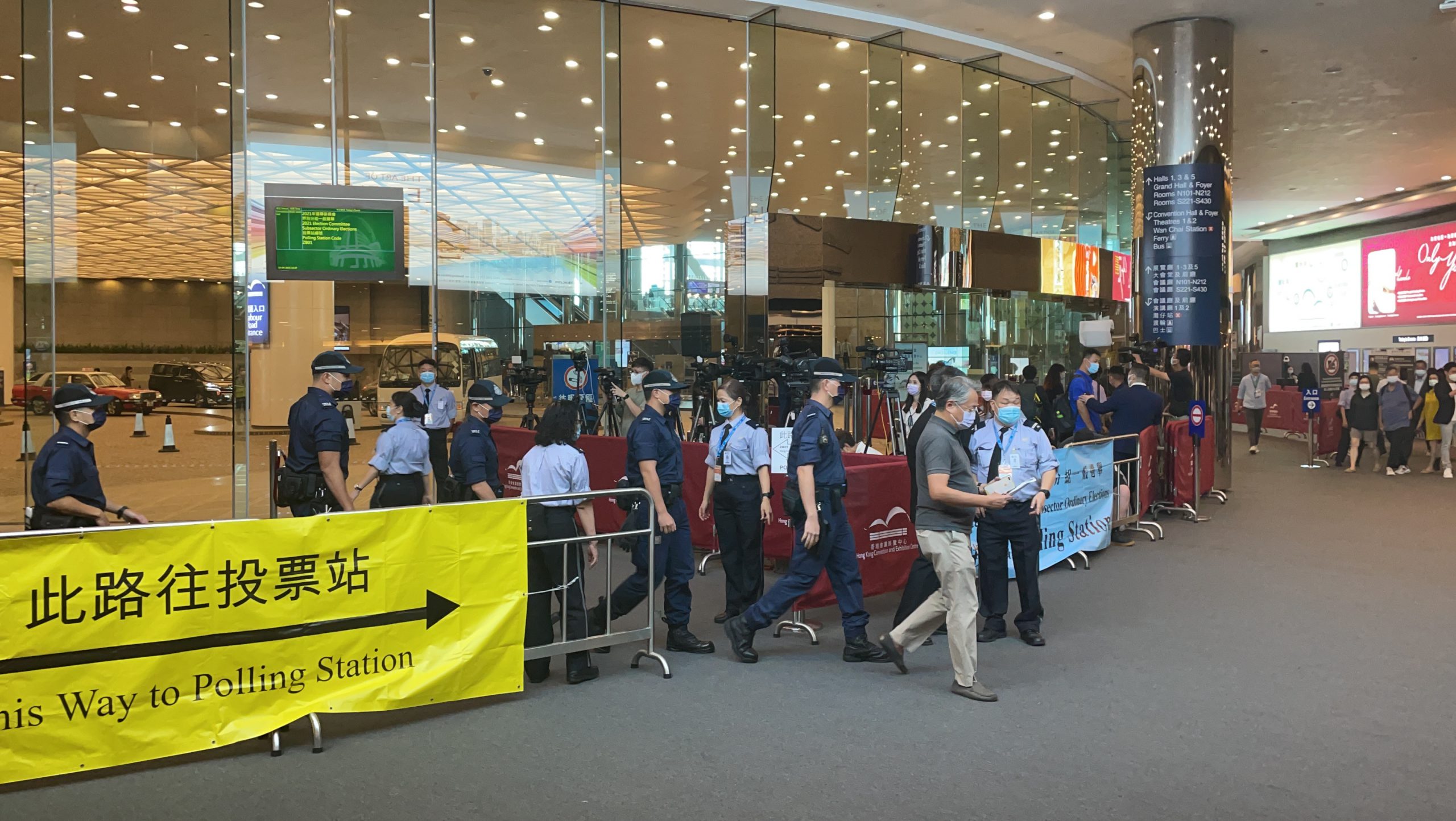Chau Yin-ming, chairman of the Sai Kung District Council, realized he was likely to fail in the Election Committee polls, but it was too late to do anything about it.
He told the media before the results came out that he had little chance of winning the election.
His comments attracted attention because he was one of only two candidates outside the pro-establishment camp in the election, which is the first main poll after the electoral overhaul of Hong Kong.

Beijing completely revamped the city’s electoral system in March as part of the new policy of "patriots" administering Hong Kong, effectively disqualifying or deterring most pan-democrat candidates from the annual Election Committee polls. This year, only one candidate who was not from the pro-establishment camp won a seat in the body that appoints the city's chief executive, compared to 325 candidates elected in the previous term.
Along with a significant decrease in the number of eligible voters, experts say the election has become a small-circle election to ensure that only Beijing-approved candidates can be selected.
After the revamp, the number of Election Committee members increased from 1,200 to 1,500. The extra 300 seats form a new sector that includes Hong Kong delegates to China’s top decision-making bodies making the sector's composition of members increased to five.
However, the number of seats to be contested decreased. With most members being ex-officio members and automatically elected members, the number of directly elected seats dropped from 734 to 364.
The powers of the election committee have been expanded. While being responsible for nominating and electing the Chief Executive of Hong Kong, it is responsible for nominating all members of the Legislative Council and electing 40 of the 90 members of it.
A candidate review committee was set up in July. To be eligible to participate in the election, candidates must meet the criteria of the Review Committee for "patriots", who should ‘sincerely support the resumption of the exercise of sovereignty over Hong Kong by the Motherland’, according to the official document. In such cases, some candidates have been disqualified because they have participated in protests.
“I once signed a document against the national security law, so I was afraid that I would be judged disqualified before the registration of candidates as well,” Chau said.
Chow said his non-establishment status "had an impact" on his election loss. Yet, the decisive reason was that he was ill-prepared for the changes in this election, especially in the voter structure.
In previous elections, individuals from many subsectors were allowed to vote. Now, only representatives from each group of these subsectors can vote, blocking many former eligible voters outside.
The Social Welfare subsector, which Chau was in, had 13,821 individual voters last election. This year, only 144 body voters representing organizations in the subsector were allowed to vote.
The change in voter structure caused the number of registered voters to fall from 246,440 to about 7,900, a decrease of 97%.
In this term of the election committee, the pro-democracy camp did not coordinate representatives to participate in the election.
“Many members from the pro-democracy parties refused to participate in this election because they knew it was difficult for them to pass the review…” Chau said. “They also protested against the new electoral system by refusing to participate."
Chau described himself as ‘lonely’ in this election, as almost all candidates were from the pro-establishment camp, while the opposition camp criticized him for giving in to the backward democracy system.
“No one can move forward with me now,” Chau said.
Tik Chi-yuen, chairman of Third Side, a centrist party, was the other candidate from outside pro-establishment who won a seat on the Election Committee. He said that one of the impacts the new electoral system has made on the committee was the unification of opinions as he was the only one who was elected in the opposition camp.
“I took part in the election to express more opinions from the people in Hong Kong,” Tik said.
Because of the decline of eligible voters in the Election committee polls, many people who once had the right to vote thought they lost one way to express their opinions and questioned the fairness of the election.
"The automatic election of members from many sectors and the stop of non-patriots have led to a reduction in voters, which actually makes the election fairer," Legislative Council Member Lau Kwok-fan said.
As the Election Committee’s power has been expanded, the results of the poll means the pro-Beijing camp will firmly control the Legislative Council election in December this year and the Chief Executive election in March next year.
“Hong Kong's democratic system has regressed to the era of British rule," Chau said. "I feel desperate about the current democracy system, but I must continue to make my own contribution.”
Tik said he would listen to opinions among different classes of people as soon as he won the seat. In October, he announced that he would participate in the Legislative Council election.
“It is still too early to evaluate the reform of the electoral system,” Tik said. “We need to see the performance of the government under the new system.”
Both Chau and Tik said they expected that Hong Kong will have a more democratic system in the future.
"Since its handover, Hong Kong's political stem has been like a pendulum. I hope it will move to a more democratic side next," Chau said.
《The Young Reporter》
The Young Reporter (TYR) started as a newspaper in 1969. Today, it is published across multiple media platforms and updated constantly to bring the latest news and analyses to its readers.

Second batch of consumption vouchers spurs shopping spree

Quarantine rooms for domestic helpers snapped up in minutes




Comments